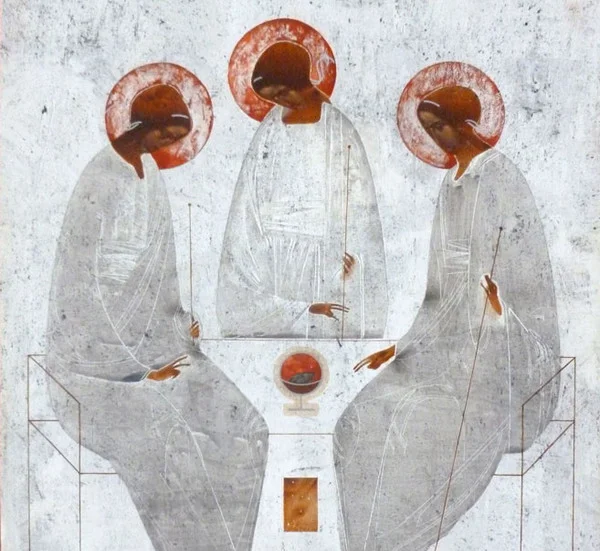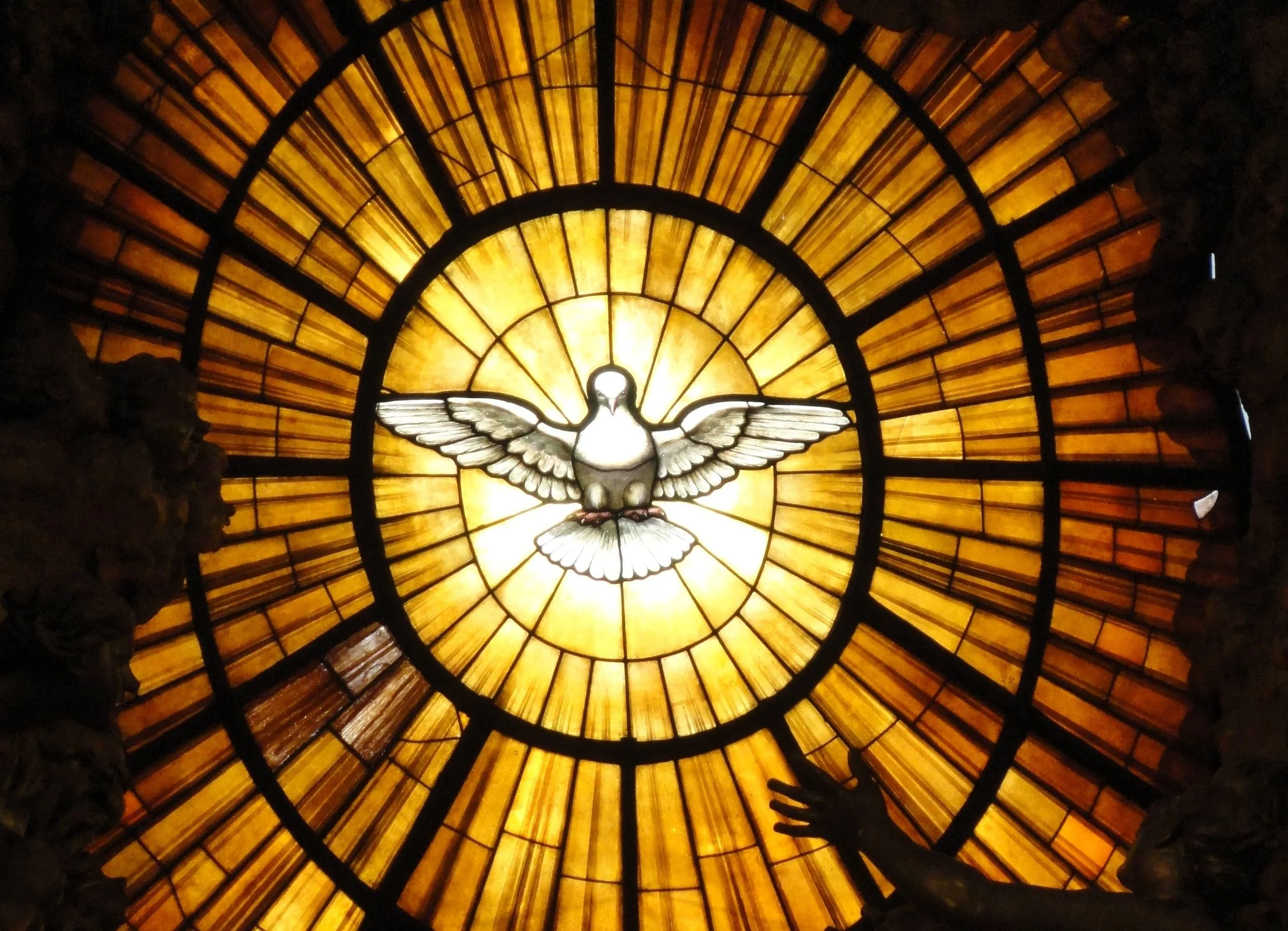I speak from the margins of the church. Those of us with a heart for spiritual direction are always on the edge of things. Isn’t that a good place to be? With the Holy Spirit? Where better to be than in a place less of power than of influence? The gospel spreads better from the weak to the strong than vice versa. […]
God and Emotions series -- "God is Love"
Tina Turner famously sang: ’What’s love got to do, got to do with it? What’s love but a second hand emotion?’. In short, the Christian answer to her question is: ‘Everything’.
In God’s case, we can go a little deeper. God is God’s love. God’s love isn’t a second-hand emotion, but God himself. God’s ‘emotions’ aren’t second-hand properties but identical to him and to each other. Recalling the doctrine of divine simplicity, God simply is. God is God. And God is love: ‘God is love, and those who abide in love abide in God, and God abides in them.’ (1 John 4.16). […]
Discerning a Vocation: Five Books
Vocation is a tricky word. Firstly, we tend to think that when discernment and vocation are placed together, the only thing being discerned is a call to ordained ministry. Second, such a view not only suggests that discernment which leads to different path is “failure” in some sense, but it also sets the vocation to ordained ministry above all other places and professions to which we might be called. Thirdly, such a narrow focus is accompanied by an equally narrow understanding of the gifts we have been given by God and the work of the Holy Spirit.
Discerning a Calling to Ordained Ministry
If you were looking for a reason to be put off ordained ministry, you could do worse than pick up your nearest Book of Common Prayer. In the Ordinal, very probably written in the summer of 1550, Thomas Cranmer elucidated the role of priests as those who are to seek for Christ's sheep that are dispersed abroad, and for his children who are in the midst of this naughty world, that they may be saved through Christ for ever. […]
What is a Christian vocation (and how to discern it)?
The irony of a priest writing on lay or secular vocations is not lost on me. Even more ironic is the fact that I shall be doing so primarily through the lens of ordained ministry, which—for many, though hopefully not for all—will disqualify this offering altogether. In any case, my purpose is to consider how our theology of vocations to ordained ministry can inform our—lamentably much less developed—theology of vocations to other forms of work. […]
Book review: Reimagining Britain (Justin Welby)
Simon Cuff reviews Justin Welby’s Reimagining Britain (Bloomsbury, 2018).
What is Spiritual Direction?
The name, Spiritual Director, can sound intimidating or have unwelcome overtones of spiritual power and authority. Many directors consequently prefer the old Celtic word, ‘Soul Friend’ (anmchara). This has the merit of indicating that what is involved is a freely chosen relationship of trust and openness with a more experienced/mature Christian, who stands alongside and accompanies the person who seeks him or her out. […]
God and Emotions series -- "The Wrath of God"
The phrase the ‘wrath of God’ fill us with dread. And quite rightly. For many the wrath of God is so terrifying that the idea of living any sort of Christian life at all is as terrifying as the wrath they fear. If nothing else, it’s important to remember from the outset that anger of God is identical with the love of God. If we fear God’s wrath, we can remember that it is nothing less than God’s love. And there’s not a single thing we can do that will make God love us any less than he does already, since he created us and called us into being. […]
Corpus Christi: The Language of Self-giving
When I think of my time at theological college, it’s fair to say that I was not well behaved. I came having studied theology for the previous six years, and was exempt from much of what was prescribed for most others. This left me, and a friend in a similar position, with too much time on our hands, never a good thing for those with a certain amount of growing up to do. One of the first bits of trouble we stirred up was an unsuccessful campaign to persuade the powers that be that the Blessed Sacrament should be reserved in the chapel. […]
The Trinity: The Basis of Christian Life
It is an experience almost all students are forced to endure at one time or another. Picture the scene. A group of friends gathers together, perhaps on a summer evening. Work is finished for the day, the sun is not long down, the wine is flowing. Idle chit chat puts the world to rights and all is as it should be. Except that two of the group are paying no attention to anybody else. You see, two of the group—as they will eagerly tell anyone prepared to listen—are very much in love […]
June 28 2018 -- "Catechesis: An Invitation to Living Faith"
On June 28 the School of Theology in partnership with Living Church and Pusey House will be exploring a holistic vision of catechesis, by examining its relationship to Christian worship and liturgy, the teaching of doctrine, mission and social action, and evangelism. […]
The Holy Spirit: The Presence of Divine Love
The Holy Spirit, though at the centre of our faith, is perhaps the least talked about aspect of our belief and worship. Every prayer, every blessing, every mass, the Holy Spirit is invoked or mentioned, just before we move on to talk about Jesus. This is perhaps not all bad. Jesus himself said that he was going to send the Spirit who would 'bear witness to me ... He will glorify me, for he will take what is mine and declare it to you' (John 15.26; 16.14). […]
Easter series -- “God is gone up with a merry noise”
When I first arrived at the Chapel where I now serve as Chaplain, I was somewhat dismayed to find it dominated by this image of the Ascension. Not that this image, populated by angels rather than the more conventional baffled disciples, is instantly recognizable as a depiction of the Ascension. That in itself is oddly appropriate, since this key episode in the Christian story is prone to being confused or conflated with others. […]
Easter series -- “Why do you seek the living among the dead?”
Religion is once again a fashionable subject, at least as far as the media is concerned. It is not surprising to find religion close to our front pages or featured early in our news programmes. Theology, on the other hand, is less and less fashionable; something we hope the School of Theology will address. What I mean by distinguishing religion and theology here is that the media’s current love affair with religion is a love affair on their own terms: religion needs to be juicy, controversial, full of soundbites. It mustn’t ask difficult questions […]
Book review: What are we doing here? (Marilynne Robinson)
Jonathan Jong reviews Marilynne Robinson’s What Are We Doing Here? (Virago, 2018)
Easter series -- "Everything we need has already been given"
Do you watch Call the Midwife? I’m sure you know it features the same order of nuns who now live in this parish. In a favourite scene of mine, the redoubtable Sister Evangelina chides nurse Miller for buying dolly mixtures for the children. “Barley Sugar twists I said! Take all the jujubes out of there. They're everyone's favourite, and we don't want a riot on our hands.” Older and wiser, she understands that a sweet is a treat. A choice is a recipe for dissatisfaction. [...]
St George: Patron Saint of England
Each of the constituent countries of the British Isles has a patron saint. Scotland has an Apostle, St Andrew; Ireland has St Patrick who though a Roman Britain certainly evangelised in Ireland or at least the north part of it; Wales has in St David one of the very many insular saints of whom there are plenty in every part of our islands. England, however, has opted for an eastern warrior saint, from the Byzantine world who, in all probability, never existed and whose legend owes much to a pagan legendary hero of uncertain credentials. [...]
Easter series -- "I have seen the Lord"
In a strange way, the events of the Maundy Thursday and Good Friday are much easier to wrap our minds around than the events of Easter morning. We can picture the disciples on Maundy Thursday breaking bread with Jesus, we can picture Jesus, a towel wrapped around his waist, washing their feet, we can picture Good Friday with the crown of thorns and the crowds, we can picture the cross and the nails, we can picture the spear, and the dead body, and the tomb. [...]
Book review: Holy living (Rowan Williams)
Melanie Marshall reviews Rowan Williams's Holy Living (Bloomsbury 2017).
Easter Series -- "We have seen him"
The gospel stories of the first Easter Sunday morning and the following days have a stark simplicity about them. Although each gospel writer gives an account with a slightly different emphasis and intention, none of them dress the story up with pageantry or high dramatics. There is no attempt to cover up the fear and frailty of the disciples. Nor is there any attempt to explain what happened. Their message is essentially that of Mary, “We have seen the Lord”. [...]



















